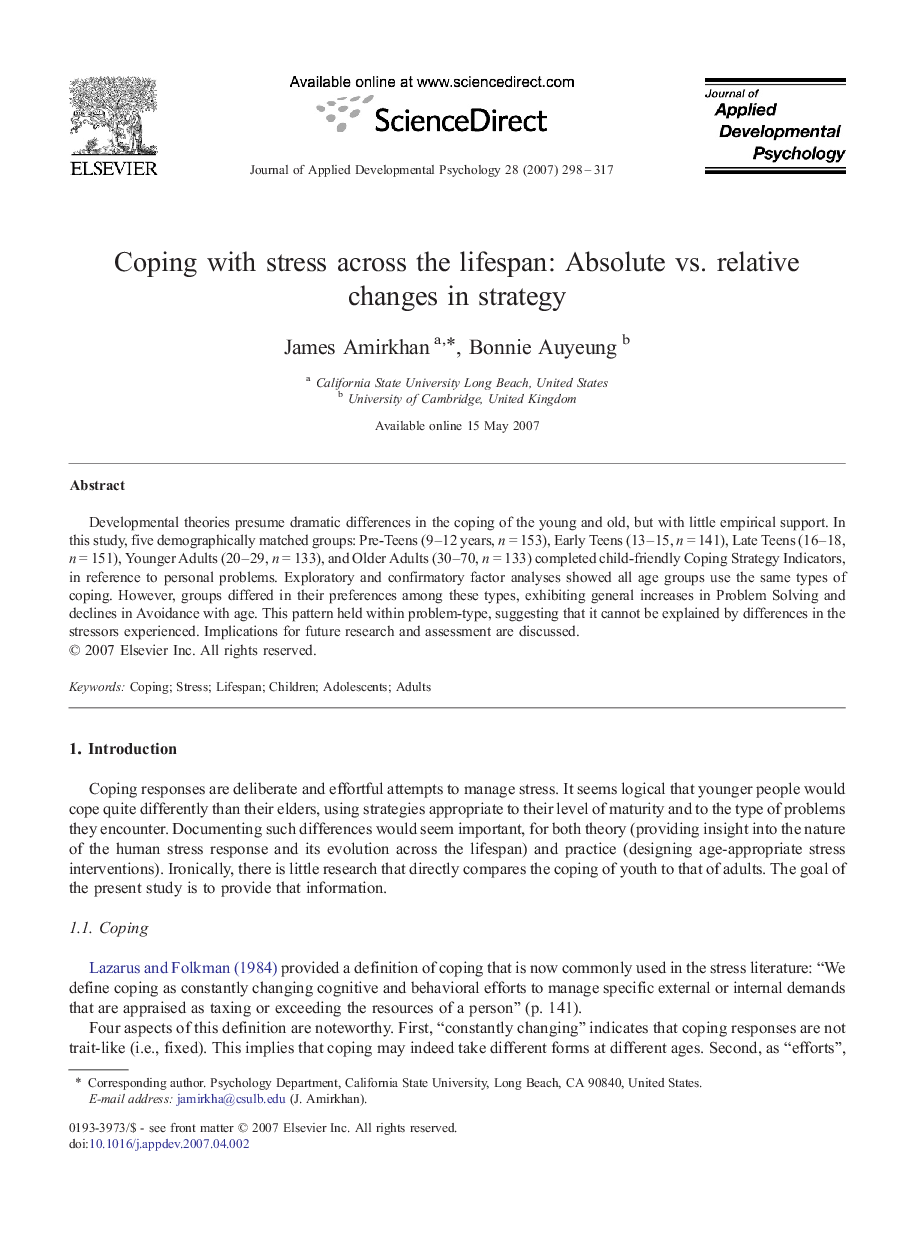| Article ID | Journal | Published Year | Pages | File Type |
|---|---|---|---|---|
| 360091 | Journal of Applied Developmental Psychology | 2007 | 20 Pages |
Developmental theories presume dramatic differences in the coping of the young and old, but with little empirical support. In this study, five demographically matched groups: Pre-Teens (9–12 years, n = 153), Early Teens (13–15, n = 141), Late Teens (16–18, n = 151), Younger Adults (20–29, n = 133), and Older Adults (30–70, n = 133) completed child-friendly Coping Strategy Indicators, in reference to personal problems. Exploratory and confirmatory factor analyses showed all age groups use the same types of coping. However, groups differed in their preferences among these types, exhibiting general increases in Problem Solving and declines in Avoidance with age. This pattern held within problem-type, suggesting that it cannot be explained by differences in the stressors experienced. Implications for future research and assessment are discussed.
